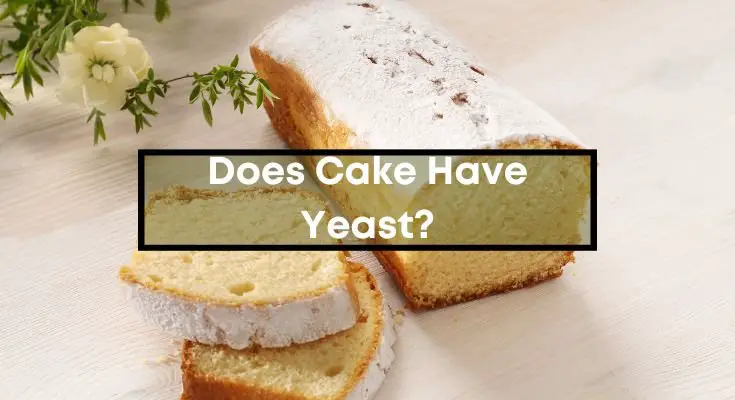As a baking enthusiast, you’ve probably come across various forms of yeast, and one of them is fresh cake yeast. This moist, creamy, and perishable yeast is a favorite among professional bakers for its reliable performance and ability to produce exceptional baked goods. However, it’s not always easy to use an entire block of fresh cake yeast before it spoils, leading many to wonder if freezing it is a viable option.

What is Fresh Cake Yeast?
Before we dive into the freezing process, let’s first understand what fresh cake yeast is. Also known as compressed yeast or baker’s yeast, it is a living organism, a strain of Saccharomyces cerevisiae, responsible for fermentation in baking.
Unlike dry active yeast or instant yeast, which are dormant until hydrated, fresh cake yeast is moist and active, needing refrigeration to maintain its viability.
Freezing Fresh Cake Yeast – Is it Possible?
Yes, you can freeze fresh cake yeast, but it requires special care to preserve its potency.
The process involves strategic steps to ensure that the yeast remains active even after thawing. By freezing your excess fresh cake yeast, you can extend its shelf life for several months.
Steps to Freeze Fresh Cake Yeast
1. Preparation
Before freezing, gather all the necessary supplies: plastic wrap, a resealable plastic bag, and a marker for labeling.
2. Portioning
Divide the fresh cake yeast into small portions suitable for your typical recipes. This way, you won’t have to thaw more than needed for a single batch.
3. Wrapping
Individually wrap each portion of fresh cake yeast in plastic wrap, ensuring there are no exposed surfaces.
4. Freezing Process
Place the wrapped yeast portions inside a resealable plastic bag. Squeeze out as much air as possible before sealing it tightly. Properly labeled, the bag will help you keep track of the freezing date.
Thawing Frozen Cake Yeast
To thaw frozen cake yeast, transfer the needed portion from the freezer to the refrigerator. Allow it to thaw slowly for about 6-8 hours or overnight. Never microwave or use warm water to thaw the yeast, as it may damage the yeast cells.
Using Frozen Cake Yeast in Recipes
When using frozen cake yeast in recipes, crumble or dice the thawed yeast, and then proof it in warm (not hot) water with a pinch of sugar before adding it to the dough mixture. This step ensures that the yeast is still active and ready to work its magic.
Tips for Successful Freezing and Usage
- Always use airtight packaging when freezing fresh cake yeast to prevent freezer burn.
- Avoid refreezing any remaining thawed yeast.
- Use the yeast within 3-4 days after thawing for the best results.
- Adjust the yeast quantity slightly in recipes when using frozen yeast to account for potential potency changes.
How Long Can Frozen Cake Yeast Last?
When properly frozen and stored, fresh cake yeast can last for up to 6 months without significant loss of potency. However, for the best performance, try to use it within 3-4 months.
The Benefits of Freezing Fresh Cake Yeast
Freezing fresh cake yeast offers several advantages:
- Reduced Waste: You can portion and freeze only what you need, reducing waste.
- Cost-Effective: Buying yeast in bulk and freezing it can be more cost-effective than purchasing smaller quantities frequently.
- Year-Round Availability: With frozen yeast, you’ll have access to it throughout the year, even when it’s not readily available in stores.
The Drawbacks of Freezing Fresh Cake Yeast
Despite its benefits, freezing fresh cake yeast also comes with some drawbacks:
- Potential Loss of Potency: Freezing may cause some reduction in yeast potency, affecting its leavening ability.
- Extra Steps: The process of freezing and thawing requires extra planning and preparation.
Alternatives to Freezing Fresh Cake Yeast
If you find freezing fresh cake yeast challenging or you prefer other options, there are alternatives to consider.
You can explore using dry active yeast or instant yeast, which have longer shelf lives and don’t require refrigeration.
FAQs
It’s best to portion and repackage fresh cake yeast before freezing it to prevent exposure to air, which can affect its quality.
Look for signs of activity, such as bubbles and a slightly pungent smell, when proofing the thawed yeast. If it appears inactive, it may have lost its potency.
It’s not recommended to freeze dough with fresh cake yeast already incorporated, as it may not rise properly after thawing.
Thawing the yeast is essential to activate it properly before use, ensuring optimal baking results.
Conclusion
In conclusion, freezing fresh cake yeast can be a practical solution for avid bakers who want to extend the shelf life of this delicate ingredient.
By following the proper freezing and thawing methods, you can enjoy the convenience of using fresh cake yeast year-round, reducing waste and saving money in the process.
